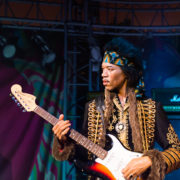The Father of the Unschooling Movement: John Holt
“Well how do kids learn? Is the parent the one that teaches the child at home?”, says the interviewer, a young polite woman who seems befuddled by John Holt’s answers as to why schools are failing and homeschooling should be the norm. He gently answers, “Your question is a very important one because it throws a light on one of the most common and mistaken notions about teaching and learning. And that is that a knowledge is sort of a liquid and teaching is the act of pouring it out a full vessel into an empty one.” As someone who had come to be known for speaking so eloquently on the nature of how children really learn, you would never guess that he entered education much later than most teachers.
Originally born in New York City, he obtained credentials in “industrial administration” (He is quoted as saying “whatever that is”). He then went into the Navy and worked on submarines for three years (He refuses to reveal much on his credentials). After the military, he joined the World Government Movement, a now seemingly forgotten coalition to join the world under one centralized government. He got rather high up the ranks, only to find the goals unattainable and left. His first teaching job came in his 30’s on the recommendation of his sister after he moved to Colorado. There he found his actual passion – watching and analyzing how children learn firsthand. He liked to see what worked, and what didn’t. He claims he didn’t imagine or try in that first job to be visionary and social reformer – he just wanted honest relationships with his students and genuine success for them. But then he was fired for what he believed was his challenging of the authoritarian way of disciplining and raising students. He believed “Convincing people that most of our present schools are bad for learning is not going to do much to change them; learning is not principally what they are for.”
It was then he took to writing books to spread the ideas he wasn’t allowed to in the classroom. His bibliography consists of an impressive eleven books (two seemed to be published posthumously). The first and most notorious one How Children Fail (1964; revised 1982), gets right to his point about how modern schooling needs to be dismantled. Even the better sides of it and better schools only serve to stand in the way of real learning, he challenges in that book. He argues that children, by nature, want to learn. His most provocative point is that children only “accomplish” anything in schools as a means of appeasing adults. These are the main aspects actually taught in schools:
1. Do what you’re told without questioning or resisting, whenever I or any other authority tell[s] you to do something.
2. Go on doing what you’re told for as long as you’re told. Never mind how dull, disagreeable, or pointless the task may seem. It’s not for you to decide.
3. Do whatever we want you to do, willingly. Do it without even having to be told. Do what you’re expected to do.
4. If you don’t do these things you will be punished and you will deserve to be.
5. Accept your life without complaining even if you get very little if any of what you think you want, even if your life has not much joy, meaning, or satisfaction. That’s what life is.
6. Take your medicine, your punishment, whatever the people above you do to you, without complaining or resisting.
7. Living this way is good for your soul and character.
It started (or added a lot of fuel to the fire of) a national debate on the quality of schools. He also started a bimonthly newsletter, “Growing Without Schooling” on how to teach kids at home (They can all actually still be read here). It is almost jarring to read them. I picked a random issue and just started reading. This one was written in the 80’s, but the events easily read like something you could read in the New York Times or the like now. In this issue, he speaks of how the hand-wringing about how bad the schools are from the The President’s commission on Excellence in Education. In his typical gentle and intelligent snarkiness, Holt says “What did the commission recommend? A longer school year, tougher courses, fewer electives, higher standards (code for “flunk more kids”), better teachers, more money.” He easily could have been talking about Common Core or No Child Left Behind.
Some would argue these seem particularly cynical by today standards (at least in theory). But DeVos rolled back many Obama era regulations about how schools could punish students. I myself went to a charter school that was supposed to be the “humane” alternative to public schools: each of these feels as true as they did in 1964. If you go and look at any review of his books on Barnes and Noble, Amazon, etc, you will find many people saying that his books are just as relevant nowadays.
An interesting point about him that does bear translating from that time to this: he did not actually prefer the term “unschooling”. He preferred to refer to it as “living”, as he believed the idea of separating out figuring out yourself in the work was inextricably tied with learning, and schools desire to separate out the two as absurd.
Unfortunately, we lost John Holt rather early – he died of cancer at 62 in 1985. One can only wonder how much more he could have influenced the current system had he lived longer. Perhaps he could have helped Common Core and No Child left behind from failing or gaining as much traction. Still, we have much of his work to influence future decisions. We can only hope that policymakers, school administrators, and most importantly parents read his books and teachings. Perhaps than school choice and homeschooling would be less about inducting children into cults and and letting them learn how to be social, active learners in their own right. After all, in his second book, How Children Learn, he argues that learning comes to small children “as naturally as breathing”.


